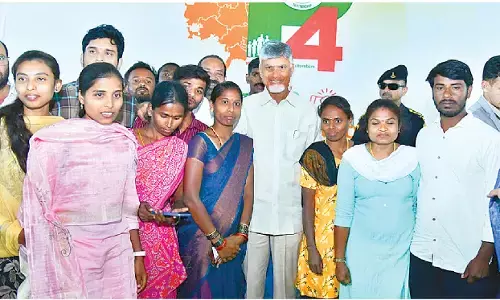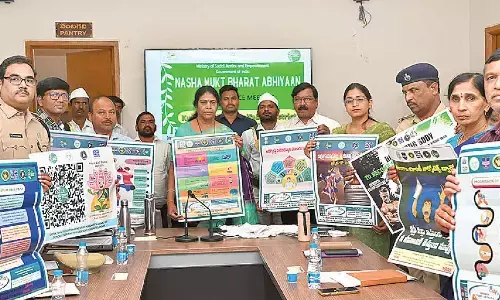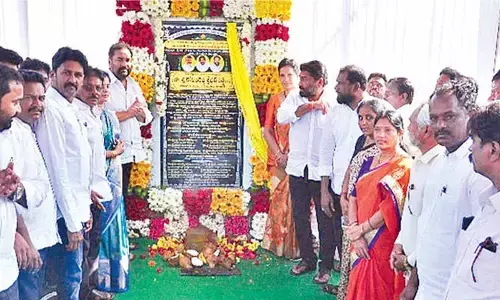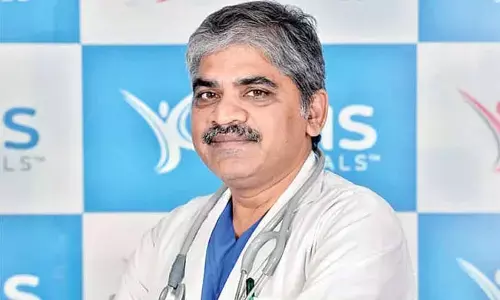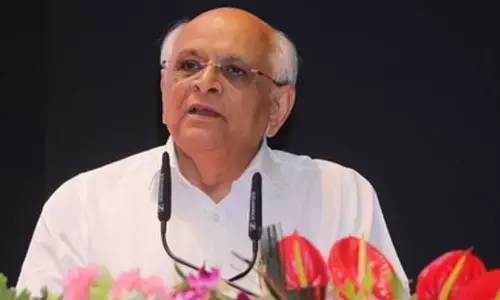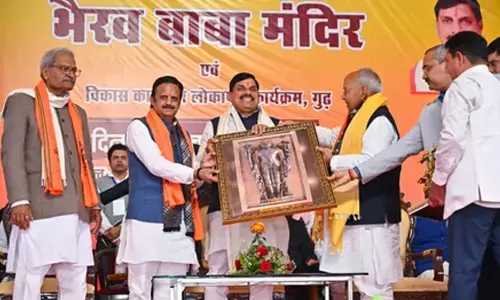Govt banks on big-ticket infra projects to put economy on growth track
Share :
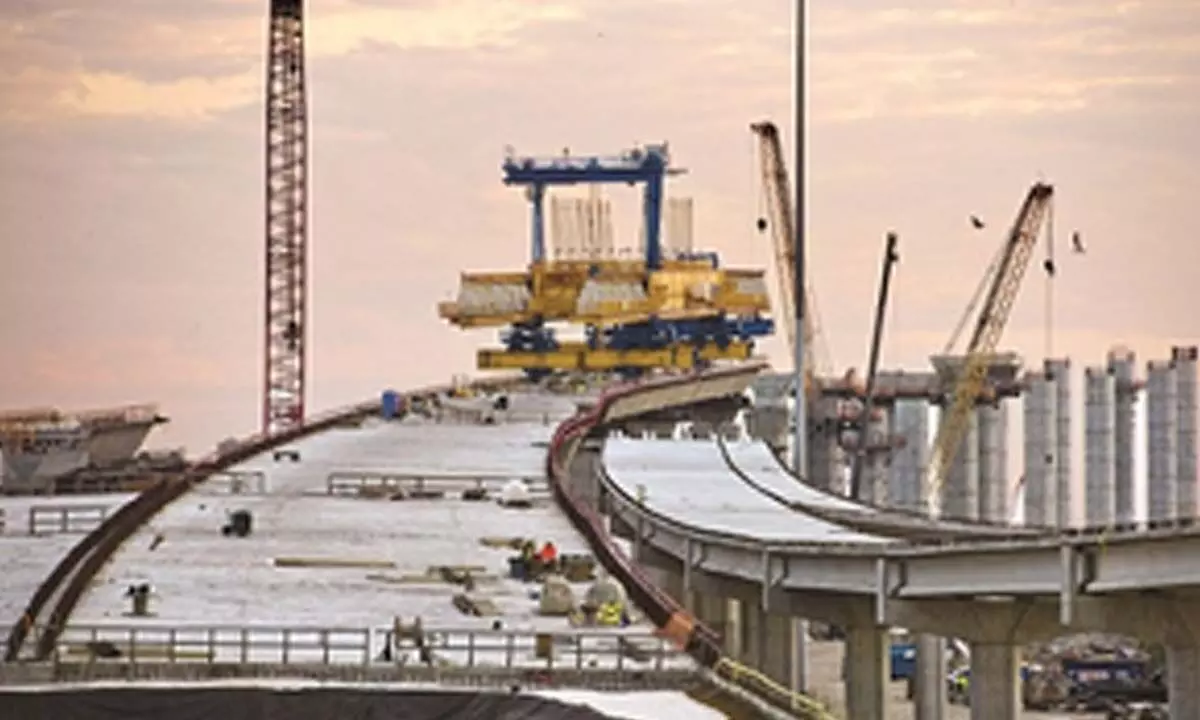
Big ticket infrastructure projects in the highways, railways and ports sector will continue to drive growth in the Indian economy as the government has stepped up the outlay for these investments in the interim budget for 2024-25.
New Delhi: Big ticket infrastructure projects in the highways, railways and ports sector will continue to drive growth in the Indian economy as the government has stepped up the outlay for these investments in the interim budget for 2024-25.
Government investments in large infrastructure projects create jobs and incomes that have a multiplier effect on the economy as the demand for products such as steel and cement also goes up which leads to more private investments and employment.
With the creation of additional jobs, the demand for consumer goods also increases leading to a further acceleration in the country’s economic growth rate.
To ramp up the virtuous cycle of investment and job creation the budget for 2023-24 had ramped up the capital expenditure outlay on infrastructure projects by 37.4 per cent to a whopping Rs10 lakh crore from Rs 7.28 lakh crore in 2022-23.
The interim budget presented by Finance Minister Nirmala Sitharaman on Thursday has further enhanced by 11.1 per cent the allocation for infrastructure projects to a whopping Rs 11.11 lakh crore to spur growth.
The increase that comes on top of a large base of the previous year will result in massive investments to spur growth. The finance minister pointed out that this will also attract big investments from the private sector which will accelerate the growth momentum.
Another positive development is that the government has cut the fiscal deficit and therefore will need to borrow less from the market. This will leave banks with more funds to finance the investments of private sector companies that in turn will spur growth.
The interim budget provides for a Rs 2.52 lakh crore capital expenditure for the Railways in 2024-25. The finance minister has announced the implementation of three major economic railway corridor programmes namely energy, mineral and cement corridors; port connectivity corridors; and high traffic density corridors
Sitharaman said that railway projects have been identified under the PM Gati Shakti Yojana for enabling multi-modal connectivity. These corridors will accelerate GDP growth by improving logistics efficiency and reducing logistics costs, she added.
The finance minister also said that the decongestion of high traffic corridors will result in improving operations, which in turn would "result in safety and higher travel speeds for passengers".
Railway Minister Ashwini Vaishnaw explained at a post-budget press conference that “overall, about 40,000 km of new tracks will be laid through these 3 corridors which will significantly increase railway capacity and reduce pollution as railways can save up to 90 per cent CO2 emissions in a cost effective manner. This will bring a big transformation in the country’s economy in an efficient, productive and sustainable manner.”
“The work to increase capacity is happening on multiple fronts. Last year we added 5,200 km of new tracks which is equivalent to the entire rail network of Switzerland. This year we are adding 5,500 km. From 4 km per day in 2014, we are now adding about 15 km per day in new tracks. So, there is a clear focus on increasing capacity, passenger experience and infrastructure,” Vaishnav added.
The Ministry of Road Transport and Highways (MoRTH) has received a fresh funds boost, with the Interim Budget enhancing its allocation to Rs 2.78 lakh crore for 2024-25 which is close to 3 per cent higher than the impressive Rs 2.7 lakh crore outlay in the previous year.
Higher budgetary allocations will help the ministry develop more highways and expressways in the country.
In addition, the ministry is trying to revive private investments in highway projects to increase the pace of development and generate more jobs in the economy. Of the 176 projects tendered out in Financial Year 2023-24, only one was a BOT project.
Minister of Road Transport and Highways Nitin Gadkari said last month that the government is committed to reviving the build-operate-transfer (BOT) model for road projects and make them more investment friendly and attractive for private partnerships.
“This will not only strengthen the road infrastructure but will have a ripple effect that will help to strengthen the economy, increase the employment potential and reduce logistics cost,” the minister said.
As many as 53 BOT (Toll) Projects for a length of 5200 km worth Rs. 2.1 lakh crore have been identified and bids for 7 projects with a length of 387 km worth Rs 27,000 crore have been invited in the coming months.
Under the BOT (Toll) mode, contractors are awarded projects based on their estimation of the revenue from the highway projects as they bear the cost of construction and recover their investment through toll rights over a specified concession period.
The National Highways Authority of India (NHAI) has proposed sweeping reforms in the Build, Operate, Transfer (BOT) model to make it more attractive for private investors.
According to the government’s ‘Vision 2047’ Plan, a large number of high-speed corridors are envisaged to be developed. Robust Public Private Partnership in development of the road sector will play a pivotal role in realizing this vision and will greatly contribute towards the development as well as operation and maintenance of a world class national highway network in the country.








